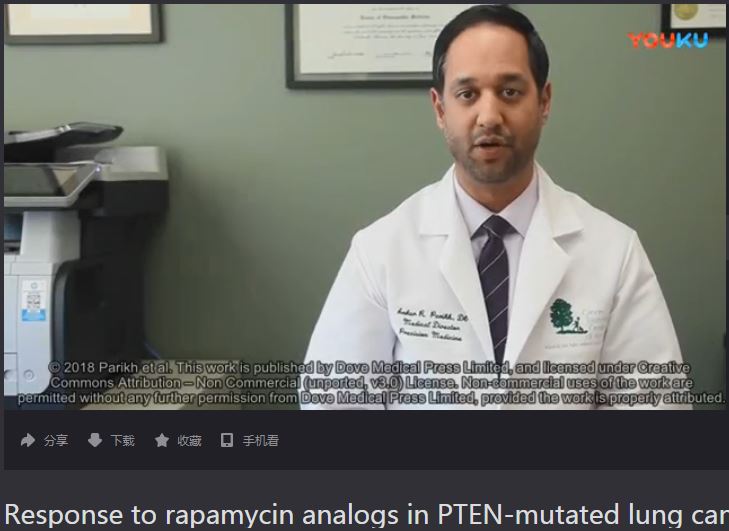9 0 5 7 8
论文已发表
注册即可获取德孚的最新动态
IF 收录期刊
- 2.6 Breast Cancer (Dove Med Press)
- 3.9 Clin Epidemiol
- 3.3 Cancer Manag Res
- 3.9 Infect Drug Resist
- 3.6 Clin Interv Aging
- 4.8 Drug Des Dev Ther
- 2.8 Int J Chronic Obstr
- 8.0 Int J Nanomed
- 2.3 Int J Women's Health
- 3.2 Neuropsych Dis Treat
- 4.0 OncoTargets Ther
- 2.2 Patient Prefer Adher
- 2.8 Ther Clin Risk Manag
- 2.7 J Pain Res
- 3.3 Diabet Metab Synd Ob
- 4.3 Psychol Res Behav Ma
- 3.4 Nat Sci Sleep
- 1.9 Pharmgenomics Pers Med
- 3.5 Risk Manag Healthc Policy
- 4.5 J Inflamm Res
- 2.3 Int J Gen Med
- 4.1 J Hepatocell Carcinoma
- 3.2 J Asthma Allergy
- 2.3 Clin Cosmet Investig Dermatol
- 3.3 J Multidiscip Healthc

Response to rapamycin analogs but not PD-1 inhibitors in PTEN-mutated metastatic non-small-cell lung cancer with high tumor mutational burden
Authors Parikh AR, Ali SM, Schrock AB, Albacker LA, Miller VA, Stephens PJ, Crilley P, Markman M
Received 6 January 2018
Accepted for publication 1 February 2018
Published 18 May 2018 Volume 2018:9 Pages 45—47
DOI https://doi.org/10.2147/LCTT.S161738
Checked for plagiarism Yes
Review by Single-blind
Peer reviewers approved by Dr Justinn Cochran
Peer reviewer comments 4
Editor who approved publication: Dr Sai-Hong Ignatius Ou
Abstract: In non-small-cell lung
cancer (NSCLC) refractory to standard therapy and which lacks well-known
oncogenic drivers, genomic profiling can still identify genomic alterations
that may suggest potential sensitivity to targeted therapy. PTEN mutation in
NSCLC may be sensitizing to analogs of rapamycin such as everolimus or
temsirolimus, but more investigation is needed. We report the case of a patient
with metastatic NSCLC harboring a PTEN mutation as well as high tumor
mutational burden and PD-L1 positivity with a durable response to temsirolimus,
but refractory to a checkpoint inhibitor. Even in the event of failure of
treatment with checkpoint inhibitors in the background of a case with a higher
tumor mutational burden and PD-L1 positivity, targeting specific genomic
alterations may still result in patient benefit.
Keywords: genomic
profiling, temsirolimus, targeted therapy, immunotherapy
摘要视频链接:Response to
rapamycin analogs in PTEN-mutated lung cancer
